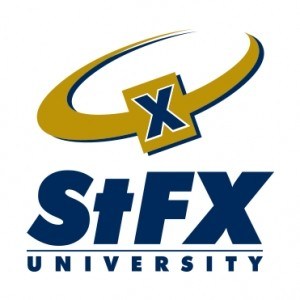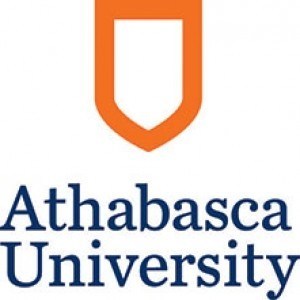Photos of university / #stfxuniversity
The Bachelor of Science in Mathematics and Statistics at St. Francis Xavier University offers students a comprehensive and rigorous education in the fundamental concepts of mathematics and statistical analysis. This program is designed to develop critical thinking, problem-solving, and analytical skills essential for diverse careers in science, technology, finance, data science, education, and research. The curriculum covers core areas such as calculus, linear algebra, discrete mathematics, mathematical reasoning, probability theory, and statistical inference, providing students with a strong theoretical foundation. Additionally, students have the opportunity to explore applied topics like statistical computing, actuarial science, and mathematical modeling, preparing them for practical applications in various industries. The program emphasizes experiential learning through laboratory work, research projects, and internships, fostering hands-on experience and real-world problem solving. Students are encouraged to engage in collaborative learning environments and develop excellent communication skills to effectively present complex quantitative information. The program also offers electives that allow for specialization in areas such as applied mathematics, theoretical mathematics, or applied statistics, catering to individual interests and career goals. Graduates of this program are well-equipped for careers in academia, government agencies, private sector companies, or to pursue graduate studies. The university boasts a dedicated faculty with expertise in diverse mathematical and statistical disciplines, committed to mentoring and supporting students' academic and professional development. With modern facilities and resources, students have access to advanced computational tools and software essential for contemporary mathematical research and statistical analysis. The Bachelor of Science in Mathematics and Statistics at St. Francis Xavier University prepares students not only for immediate employment but also for lifelong learning and adaptation in a rapidly changing world driven by data and quantitative reasoning.
The Mathematics and Statistics program at St. Francis Xavier University offers students a comprehensive and rigorous education in the fundamental principles of mathematics and the application of statistical methods. This program is designed to equip students with analytical and problem-solving skills essential for diverse careers in science, technology, education, finance, and research. Students will explore core topics such as calculus, linear algebra, discrete mathematics, probability theory, and statistical inference, developing a strong foundation in both theoretical understanding and practical application.
Throughout the program, students will have the opportunity to engage in hands-on learning through laboratory sessions, computer-based projects, and real-world case studies that emphasize data analysis, modeling, and interpretation. The curriculum is carefully structured to foster critical thinking and quantitative reasoning, preparing graduates to work effectively in multidisciplinary teams and adapt to the evolving demands of data-driven industries.
Additionally, the program offers optional specializations and electives that allow students to delve deeper into areas like computational mathematics, actuarial science, biostatistics, and data science. Faculty members are dedicated to providing personalized mentorship and supporting students in research initiatives and professional development. The program also encourages participation in internships, co-op placements, and conferences to enhance practical skills and industry connections.
Graduates of the Mathematics and Statistics program at St. Francis Xavier University are well-prepared for advanced studies or careers in academia, government agencies, industry, or the private sector. They possess a versatile skill set with strong quantitative expertise, analytical thinking, and problem-solving capabilities, making them competitive in a broad range of fields. With a curriculum that balances theoretical insights and practical applications, the program aims to produce confident and competent mathematicians and statisticians ready to contribute meaningfully to society.
Program Requirements for Mathematics and Statistics at St. Francis Xavier University include a combination of core courses, electives, and research components designed to provide students with a solid foundation in mathematical theories and statistical methods. Students are typically required to complete a set number of credit hours at the undergraduate level, with specific courses in calculus, linear algebra, abstract algebra, and real analysis forming the core of the curriculum. In addition, students must take introductory and advanced courses in statistics, probability theory, and data analysis to develop strong quantitative and analytical skills.
The program emphasizes both theoretical understanding and practical application, encouraging students to engage in research projects, internships, or cooperative education placements. Certain courses focus on computational techniques, statistical software, and real-world data interpretation, preparing graduates for careers in industries such as finance, data science, research, and academia. Students are also advised to fulfill university general education requirements, which may include courses in humanities, social sciences, and communication skills, fostering well-rounded graduates.
To graduate with a Bachelor of Science in Mathematics and Statistics, students typically need to maintain a minimum GPA as specified by the department and complete a capstone project or thesis that synthesizes their learning experience. The program encourages participation in seminars, workshops, and conferences to enhance scholarly activity and professional development. Prerequisites for advanced courses may include foundational courses in mathematics and statistics. Overall, the program is designed to prepare students for graduate studies or employment in quantitative and analytical fields, emphasizing critical thinking, problem-solving, and methodological rigor.
Want to improve your English level for admission?
Prepare for the program requirements with English Online by the British Council.
- ✔️ Flexible study schedule
- ✔️ Experienced teachers
- ✔️ Certificate upon completion
📘 Recommended for students with an IELTS level of 6.0 or below.
Finance options for the Mathematics and Statistics program at St. Francis Xavier University include a variety of scholarships, bursaries, and financial aid opportunities designed to support students throughout their studies. Entrance scholarships are awarded based on academic achievement, with notable awards such as the X-Men Scholarship, which recognizes high achieving students upon admission. Continuing students can access a range of bursaries aimed at reducing financial barriers, including need-based bursaries that assist students demonstrating financial need. The university also offers awards specifically for students in the Mathematics and Statistics program, often through faculty nominations or departmental awards recognizing excellence in academic performance or research potential. Additionally, students are encouraged to explore external scholarship opportunities, some of which are targeted at students pursuing degrees in mathematical sciences or related fields. Students can also apply for work-study positions on campus, providing part-time employment opportunities that complement their studies and help cover educational expenses.
Payment plans are available to help manage tuition costs over the academic year, and students are advised to contact the university’s financial aid office for personalized guidance. The university's Financial Aid Office offers comprehensive assistance in applying for federal and provincial student loans, which can significantly offset educational costs. International students pursuing the program can access specific scholarships tailored to global students, often based on academic merit or country of origin. It is important to review the university's official website regularly for updates on new scholarships, bursaries, or funding opportunities that may arise during admission cycles. Overall, students enrolled in the Mathematics and Statistics program at St. Francis Xavier University have access to a robust network of financial support designed to facilitate their academic journey and reduce financial stress, enabling them to focus on their educational and research pursuits in mathematics and statistics.
The Bachelor of Arts in Mathematics and Statistics at St. Francis Xavier University offers students a comprehensive education in the theoretical and applied aspects of mathematics and statistics. This program is designed to develop students' analytical and problem-solving skills, preparing them for careers in research, industry, education, or for further graduate studies. The curriculum includes core courses in algebra, calculus, probability, and statistical inference, along with elective courses that allow students to tailor their education to specific interests such as computational mathematics, data analysis, or applied statistics. Students have access to modern laboratories and computing facilities, providing hands-on experience with current software and statistical programming languages like R and Python. The program emphasizes critical thinking, quantitative reasoning, and effective communication of complex data-driven insights. Opportunities for research projects, co-op placements, and internships enable students to gain practical skills and professional experience. Graduates of this program have gone on to pursue careers in data science, finance, education, government agencies, or continue their studies in graduate and professional schools. The department fosters a collaborative and engaging academic environment, supported by faculty who are active researchers and dedicated educators. Overall, the Mathematics and Statistics program at St. Francis Xavier University prepares students with a strong mathematical foundation and statistical literacy essential for a rapidly data-driven world.


